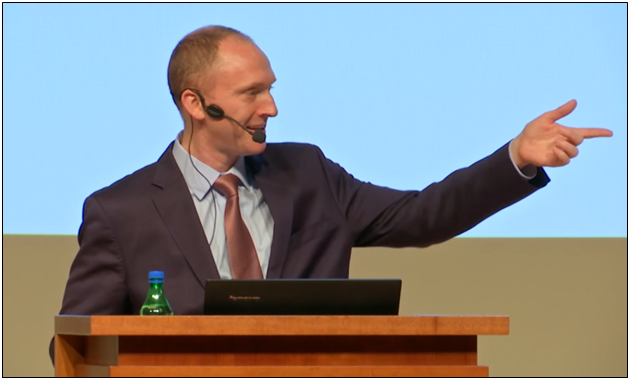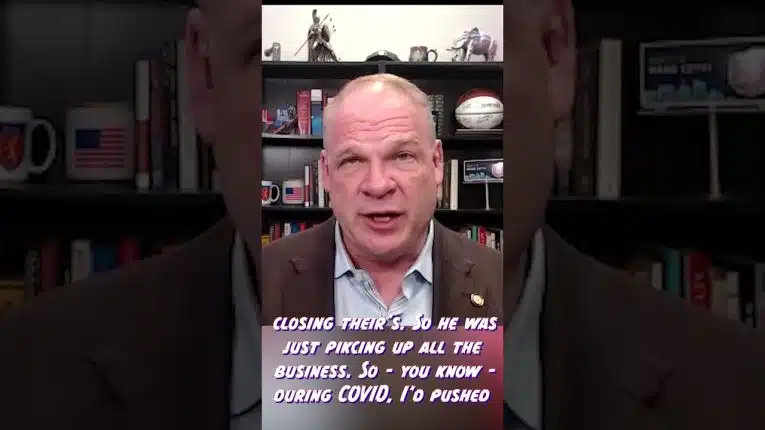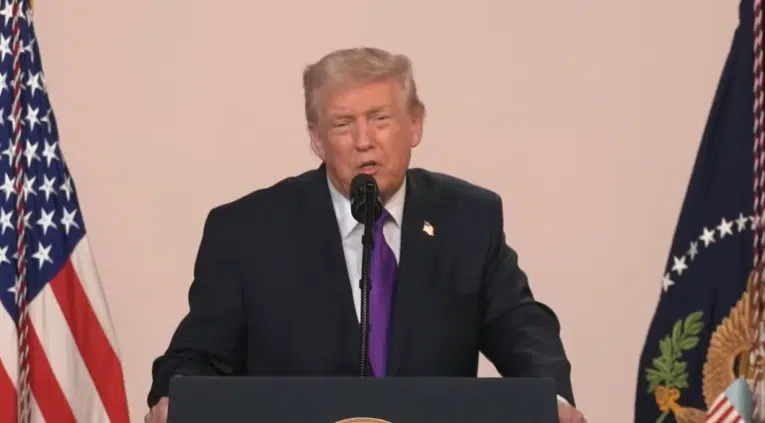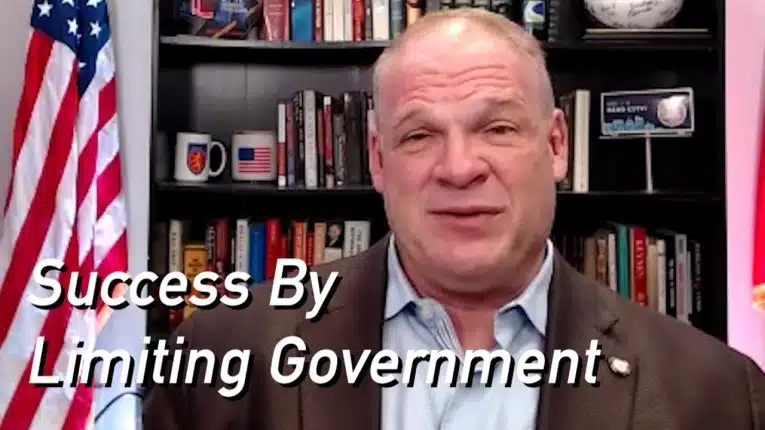Former Trump foreign policy campaign advisor Carter Page was a U.S. agent who reported on Russians to the CIA, not a Russian agent, a memorandum the FBI received as early as Aug. 2016 shows according to Justice Department Inspector General Michael Horowitz’s report detailing abuses of the Foreign Intelligence Surveillance Act (FISA) including spying on the Trump campaign in 2016.
But the Crossfire Hurricane team investigating the Trump campaign on false allegations they were Russian agents kept the extent of that relationship hidden from Department leadership and the FISA Court and instead used Page’s Russian contacts — that were for the purpose of gathering U.S. intelligence — as evidence that he was a Russian agent.
More than anything, it was Page’s contacts with Russians, including a trip to Moscow in the summer of 2016 to deliver a commencement address at the New Economic School, that enabled the spying on the Trump campaign in 2016 to go forward that might have otherwise never been approved.
According to the Horowitz report, “[O]n or about August 17, 2016, the Crossfire Hurricane team received information from another U.S. government agency advising the team that Carter Page had been approved as an operational contact for the other agency from 2008 to 2013 and detailing information that Page had provided to the other agency regarding Page’s past contacts with certain Russian intelligence officers. However, this information was not provided to NSD attorneys and was not included in any of the FISA applications.”
That was in Aug. 2016, two months before the FISA warrant application against Page was completed. The FBI had proof positive that Carter Page was a U.S. intelligence agent who was reporting on Russian intelligence, exculpatory that might have given leadership at the department pause in obtaining surveillance on the Trump campaign, at the time the opposition party, in an election year.
And yet, per Horowitz, the full extent of Page’s relationship with the CIA was never forwarded to the National Security Division of the Justice Department, including to the Office of Intelligence, nor was it included in any of the FISA applications, including the renewals, even though information about Page’s status as an intelligence operative was requested by the Justice Department’s top brass.
According to Horowitz, “[W]hen Case Agent 1 was explicitly asked in late September 2016 by the OI [Office of Intelligence] Attorney assisting on the FISA application about Page’s prior relationship with this other agency, Case Agent 1 did not accurately describe the nature and extent of the information the FBI received from the other agency.”
Then, the case agent included a comment stating that downplayed Page’s role with the CIA and that the information was dated: “He did meet with [the other U.S. government agency], however, it’s dated and I would argue it was/is outside scope, I don’t think we need it in. It was years ago, when he was in Moscow. If you want to keep it, I can get the language from the [August 17 Memorandum] we were provided [by the other U.S. government agency].”
But the inspector general found that was false: “the information Case Agent 1 provided to the 01 Attorney was inaccurate…” Why? Because, per Horowitz and as outlined in the memo the Crossfire Hurricane team sat upon, “Page first met with the other agency in April 2008, after he left Moscow (Page had lived in Moscow from 2004 to 2007), and he had been approved as an operational contact for the other agency from 2008 to 2013. Additionally, rather than being outside the scope of the FISA application, the FISA application included allegations about meetings that Page had with Russian intelligence officers that Page had disclosed to the other agency. Specifically, according to the August 17 Memorandum, Page provided information to the other agency in October 2010 about contacts he had with a Russian intelligence officer (Intelligence Officer 1), which the other agency assessed likely began in 2008. Page’s contacts with Intelligence Officer 1 in 2007 and 2008 were among the historical connections to Russian intelligence officers that the FBI relied upon in the first FISA application (and subsequent renewal applications) to help support probable cause.”
In other words, the contacts Page had with Russians cited in the FISA application used by the government as evidence he was a Russian agent, upon examining the details, were evidence that he was a U.S. agent reporting on Russians to the CIA.
What’s more, if the Office of Intelligence had been alerted to this fact, that Carter Page was a U.S. agent, it would have been included in the FISA warrant: “The OI Attorney also told us, after being informed about information in the August 17 Memorandum from the other U.S. government agency, that if OI had been aware of this information at the time the application was being prepared, OI would have discussed it internally and likely would have disclosed the information to the FISC to ‘err on the side of disclosure.’”
Similarly, then-National Security Division Deputy Assistant Attorney General Stuart Evans said when asked by the inspector general that the information that Page was a U.S. asset would have been included in the FISA application: “I think it would go in the application somewhere, be it in a footnote or elsewhere, if for no other reason than it also goes to the question of where the person’s loyalties lie.”
And why might it have been included? Because it was exculpatory. It was a reason to say that Page was not a Russian agent and that he had reason to communicate with Russians as a part of his role as a CIA agent.
Per Horowitz, “The OI Attorney told us that it is relevant to know if the target of a FISA is or had been working on behalf of another U.S. government agency to ‘make sure that the left hand knows what the right hand is doing’ when seeking FISA authority. As noted previously, according to the OI Attorney, it would have been a significant fact if Page had a relationship with the other U.S. government agency that overlapped in time with his interactions with known Russian intelligence officers described in the FISA applications because it would raise the issue of whether Page interacted with the Russian intelligence officers at the behest of the other agency or with the intent to assist the U.S. government. Evans told us that information about a FISA target’s relationship with another U.S. government agency is typically included in a FISA application. Evans also stated that OI would work with the FBI to fully understand any such relationship and describe it accurately in the relevant application.”
But that didn’t happen. Instead, the information that would have exonerated Page was excluded. According to Horowitz: “although this information was highly relevant to the FISA application, the Crossfire Hurricane team did not engage with the other agency regarding this information. In addition, in response to a question from the QI Attorney in September 2016 as to whether Carter Page had a current or prior relationship with the other agency, Case Agent 1 provided the OI Attorney with inaccurate information that failed to disclose the extent and nature of Page’s relationship with that agency. As a result, the first FISA application, and FISA Renewal Application Nos. 1 and 2, contained no information regarding Page’s relationship with the other U.S. government agency, and did not reveal that his relationship with the other agency overlapped in part with facts asserted in the application regarding Page’s ties to particular Russian intelligence officers.”
Eventually, Page’s role as a CIA agent would bubble up again upon the FISA reapplications, this time in June 2017. At this point, to keep the spying going, a Justice Department lawyer allegedly altered an email from a CIA liaison stating that Page was source for the agency to say that he wasn’t a source. From the Horowitz report, “SSA 2 received an email from the OGC Attorney that appeared to be forwarding the Liaison’s June 15 response email concerning Page’s historical contact with the other U.S. government agency. However, the OIG determined that this forwarded version of the Liaison’s response email had been altered. Specifically, the words ‘and not a ‘source…’ had been inserted in the Liaison’s June 15 response after the word “[digraph].” Thus, the Liaison’s email was altered to read: ‘My recollection is that Page was or is and [sic] ‘[digraph]’ and not a ‘source’ but the [documents] will explain the details.’”
So here again, material key facts — including that Page was a U.S. agent reporting on Russians to the CIA, not a Russian agent — that could have stopped the spying on the Trump campaign before it began were kept out of the hands leaders at the Justice Department making determinations about whether to pursue FISA surveillance on the Trump campaign and were hidden from the FISA court. When the issue came up again later, a Justice Department attorney altered documents — and has been referred for criminal wrongdoing — to enable the spying to continue past June 2017 in what ended up being the last FISA renewal.
By then, Special Counsel Robert Mueller had been appointed and the presumed true objective of the surveillance had been achieved: The President of the United States was now under a full-fledged criminal investigation. They didn’t need the surveillance anymore. Mueller would finish the job.
Horowitz asked officials why the information exonerating Page was sat upon and he got a lot of “do not recalls” from Justice Department lawyers and other forms of excuse-making. But the fact that the FBI and Justice Department went through such lengths to conceal exculpatory facts from federal court in order to protect their precious surveillance of a political campaign, and then the sitting President of the United States, is such an unbelievable abuse of power it warrants a full-scale criminal investigation, which fortunately is being pursued by Attorney General William Barr and U.S. Attorney John Durham.
Carter Page and the American people deserve justice for this unprecedented fraud that was perpetrated on the nation for close to three years. Now, thanks to Inspector General Horowitz, we are one step closer.
Robert Romano is the Vice President of Public Policy at Americans for Limited Government.







